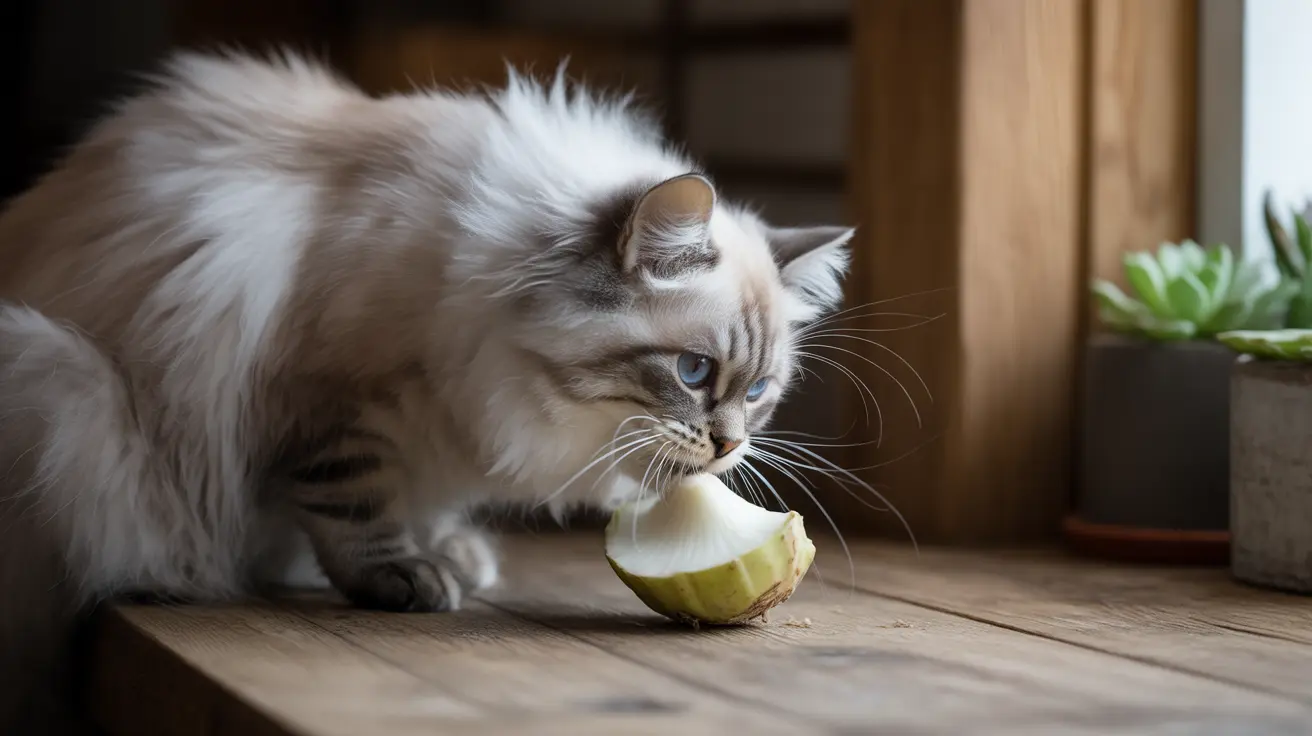If you're wondering whether cats can have jicama, the answer is yes - but with important caveats. While cats can safely consume small amounts of peeled jicama flesh, this root vegetable requires careful preparation and should only be offered as an occasional treat. Let's explore everything you need to know about feeding jicama to your feline friend.
Understanding Jicama and Cats
Jicama, often called the Mexican turnip, is a root vegetable known for its crisp texture and mild, sweet flavor. While humans enjoy this versatile vegetable, cats have very different dietary needs as obligate carnivores. Their digestive systems are specifically designed to process meat-based proteins, not plant matter.
Safe vs. Toxic Parts of Jicama
When it comes to jicama safety, knowing which parts are safe and which are dangerous is crucial:
Safe Parts:
- Peeled flesh (when properly prepared)
- Small amounts of raw or cooked jicama root
Toxic Parts:
- Skin
- Leaves
- Stems
- Seeds
- Any parts containing rotenone (a natural pesticide)
How to Safely Prepare Jicama for Cats
If you decide to offer jicama to your cat, follow these essential preparation steps:
- Thoroughly wash the jicama
- Completely peel the root
- Cut into small, manageable pieces
- Serve plain - no seasonings or oils
- Limit portions to 2-3 small pieces
Potential Benefits and Limitations
While jicama isn't nutritionally necessary for cats, it does offer some minor benefits:
- High water content for hydration
- Natural fiber
- Low calories
- Potential dental benefits from crunchy texture
However, remember that cats cannot efficiently process plant-based nutrients, so these benefits are minimal compared to their regular diet.
Signs of Jicama Intolerance
Watch for these symptoms after feeding jicama:
- Vomiting
- Diarrhea
- Lethargy
- Loss of appetite
- Digestive discomfort
If you notice any of these signs, discontinue feeding jicama and consult your veterinarian.
Alternative Safe Treats for Cats
Instead of jicama, consider these cat-appropriate treats:
- Small pieces of cooked plain chicken
- Commercial cat treats
- Tiny bits of cooked fish
- Freeze-dried meat treats
Frequently Asked Questions
Can cats safely eat jicama, and which parts of the plant should be avoided?
Cats can safely eat small amounts of peeled jicama flesh. However, the skin, leaves, stems, and seeds are toxic and must be avoided as they contain rotenone, a dangerous natural pesticide.
How should I prepare jicama before giving it to my cat to ensure it is safe?
Thoroughly wash the jicama, completely peel it, and cut it into small, bite-sized pieces. Serve it plain without any seasonings, oils, or additives.
What are the health benefits and risks of feeding jicama to cats?
Benefits include hydration and fiber content, but risks include potential digestive issues if overfed. Jicama offers minimal nutritional value for cats and should only be given as an occasional treat.
Is it okay to give jicama to kittens or cats with digestive issues?
No, kittens and cats with digestive issues should not be given jicama. Their digestive systems are more sensitive, and they require strictly controlled diets.
Can cats eat jicama fries or seasoned jicama snacks?
No, cats should never eat fried or seasoned jicama. Only plain, raw, or steamed jicama pieces are safe in moderation.
Conclusion
While cats can have jicama in small amounts, it's important to remember that it's not a necessary part of their diet. If you choose to offer this treat, do so sparingly and with proper preparation. Always prioritize your cat's primary diet of high-quality, meat-based cat food for optimal health and nutrition.






